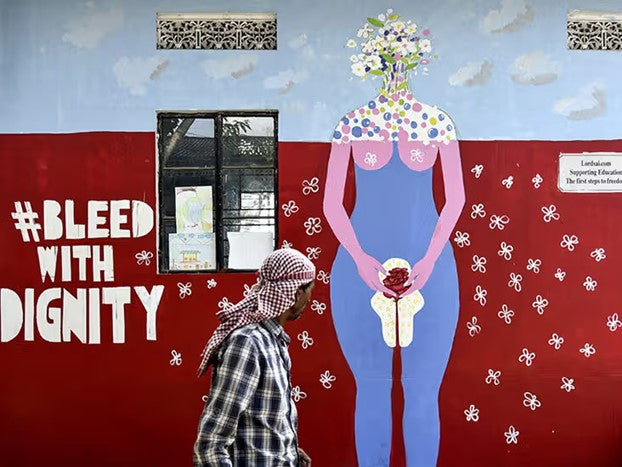
Why is period poverty a problem?
Share
Period Poverty: A Barrier to Dignity, Health, and Opportunity
In a world where basic needs should never be a luxury, period poverty stands as a stark reminder of inequality. It's more than just a lack of menstrual products; it's a barrier to dignity, health, and opportunity. Imagine the fear of leaking through your clothes, the shame of using makeshift solutions, and the silent struggles faced by millions. Period poverty robs individuals of their
basic rights and perpetuates a cycle of disadvantage. It's time to break the silence, to empower those affected, and ensure that no one has to face the challenges of period poverty alone. Let's stand together to make a difference.
When access to menstrual products is a luxury, the health consequences can be devastating. Period poverty forces many to use unsafe alternatives, putting them at risk of severe infections and long-term reproductive issues. Imagine the shame and fear of leakage that comes with using rags or leaves. This emotional toll exacerbates mental health struggles, as girls and women face stigma and bullying.

The impacts extend beyond physical health. Missed school and work due to period poverty
perpetuate the cycle of poverty and inequality. It's a public health crisis that robs individuals of their dignity and opportunities.
Imagine having to choose between buying food for your family or purchasing menstrual products. For millions of girls worldwide, this heartbreaking decision is a harsh reality. Period poverty, the lack of access to sanitary pads, tampons, and proper menstrual hygiene, has devastating consequences on education. When girls cannot afford or access menstrual products, they often miss school during their periods. This leads to lower academic performance and higher dropout rates. Without a quality education, their future economic opportunities are severely limited, perpetuating the cycle of poverty.

Imagine feeling ashamed of your own body, afraid to leave the house during your period, and isolated from your peers. For those facing period poverty, this is a harsh reality. Without access to menstrual products, many experience debilitating shame and stigma. The emotional toll is severe. Anxiety, depression, and low self-esteem plague those who struggle to manage their
periods with dignity. Social isolation follows, as fear of leakage and embarrassment keeps many from participating in daily life.
Period poverty is a crisis that disproportionately affects marginalized communities, including
low-income individuals, racial minorities, and those in developing countries. It's a harsh reality that exacerbates existing inequalities, perpetuating cycles of poverty and disadvantage. Imagine being a girl in a low-income household, forced to choose between buying food or menstrual products. Or, picture a woman in a developing country, lacking access to safe and private sanitation facilities. These are the daily struggles faced by millions, further marginalized by period poverty.
Access to menstrual products is a basic human right. We must break the silence and address period poverty to ensure everyone can manage their periods with confidence and pride. Together, we can create a healthier, more equitable world. Support organizations providing menstrual products, advocate for policy changes, and break the silence surrounding menstruation. Join us in the fight against period poverty and ensure everyone can manage their periods with dignity. It's
time to stand up and make a difference.
